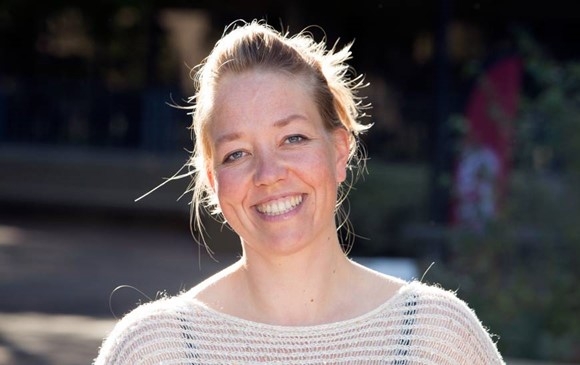Rethinking Disaster Risk Mitigation in an Increasingly Uncertain World
–
Online
Free
Open to the Public

Climate change presents a profound challenge to predictability because it entails unprecedented and possibly increasing uncertainty, including the emergence of new, previously unknown types of risks.
Rethinking Disaster Risk Mitigation in an Increasingly Uncertain World
Speaker: Prof. Jenny Suckale,
Assistant Professor of Geophysics at Stanford University
and Fellow at the Stanford Woods Institute for the Environment
Tuesday, October 25, 2022
6:00pm to 7:00pm Pacific Time
Online event via Zoom—details below
About the Topic
Risk is commonly defined as the intersection of hazard, exposure, and vulnerability. Hazard quantifies the magnitude of a process causing disruption or damage; exposure captures the number of people or assets in the area affected by the hazard; vulnerability is most commonly defined as the susceptibility of a community to the impact of hazards. Traditional engineering approaches to reducing risk target exposure, but the cost-effectiveness of exposure-based risk mitigation depends on the predictability of the threat they attempt to protect against. Climate change presents a profound challenge to predictability because it entails unprecedented and possibly increasing uncertainty, including the emergence of new, previously unknown types of risks. In this talk, I briefly discuss four case studies that could have changed my thinking about how to approach disaster risk mitigation in a changing world. They highlight (1) the value of regional coordination, (2) the need to become more intentional about equity, and (3) the importance of adaptivity in risk mitigation. All of these case studies were co-produced with communities at risk and local decision-makers.
About the Speaker—Professor Jenny Suckale
My research focuses on understanding disaster risk and resilience. I approach this challenge both from a fundamental point of view by advancing our understanding of the processes that govern extreme events in different natural systems and from an applied point of view by working with private and public partners to increase community resilience using a scientific co-production approach. My research group specializes in the development of customized mathematical models that are testable against observational data from a broad spectrum of scales. Our current research priorities span natural hazards like volcanic eruptions, climate hazards such as ice-sheet instability and permafrost disintegration, and hazards that arise from the interaction between natural processes and human interventions such as flooding in urban areas and induced earthquakes. I was recently awarded the Presidential Early Career Awards for Scientists and Engineers, the highest honor bestowed by the United States Government on science and engineering professionals in the early stages of their independent research careers.
Recommended Reading
- “Rising Seas, Rising Inequity? Communities at Risk in the San Francisco Bay Area and Implications for Adaptation Policy,” in Earth’s Future, Volume 9, Issue 7, July 2021, a journal of the American Geophysical Union (AGU).
Zoom Link to Join
https://middlebury.zoom.us/j/91351225266?pwd=NFdyQVRJcWlOSXAwN043V3BoL000dz09
Password: HappyOcean
Meeting ID: 913 5122 5266
Or iPhone one-tap :
US: +16694449171„91351225266# or +16699006833„91351225266#
Or Telephone:
Dial(for higher quality, dial a number based on your current location):
US: +1 669 444 9171 or +1 669 900 6833 or +1 253 215 8782 or +1 346 248 7799 or +1 301 715 8592 or +1 312 626 6799 or +1 386 347 5053 or +1 564 217 2000 or +1 646 876 9923 or +1 646 931 3860
Phone Password: 7362729534 (no participant ID, press # to bypass)
International numbers available: https://middlebury.zoom.us/u/aezDx4SoHL
Questions
The Center for the Blue Economy is a research organization at the Middlebury Institute of International Studies. Our mission is to promote a sustainable ocean and coastal economy (the “Blue Economy”) through leadership in research, analysis, and education. For questions contact: Rachel C. at cbe@middlebury.edu or visit centerfortheblueeconomy.org or call 831-647-4183 (must leave message and receive call back).
